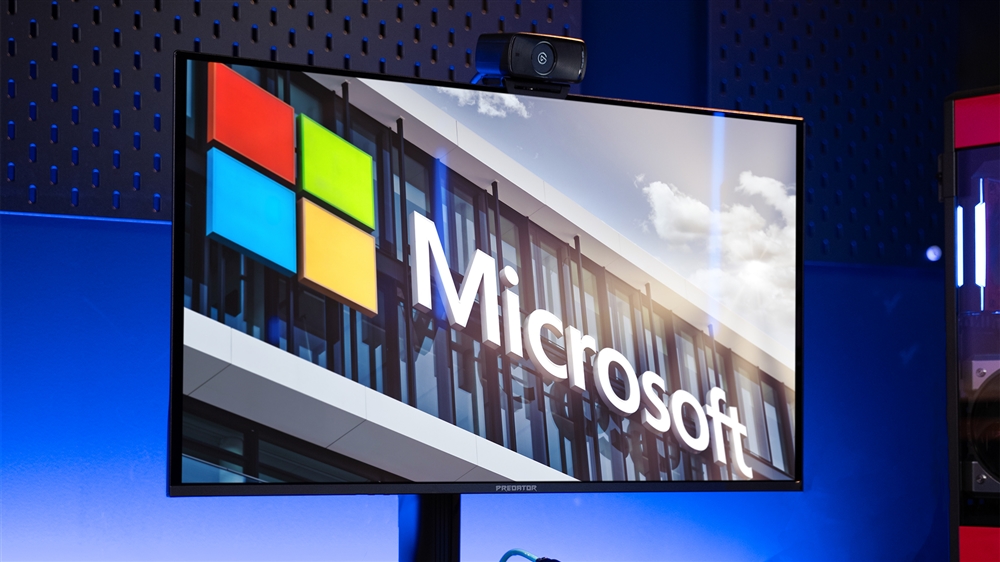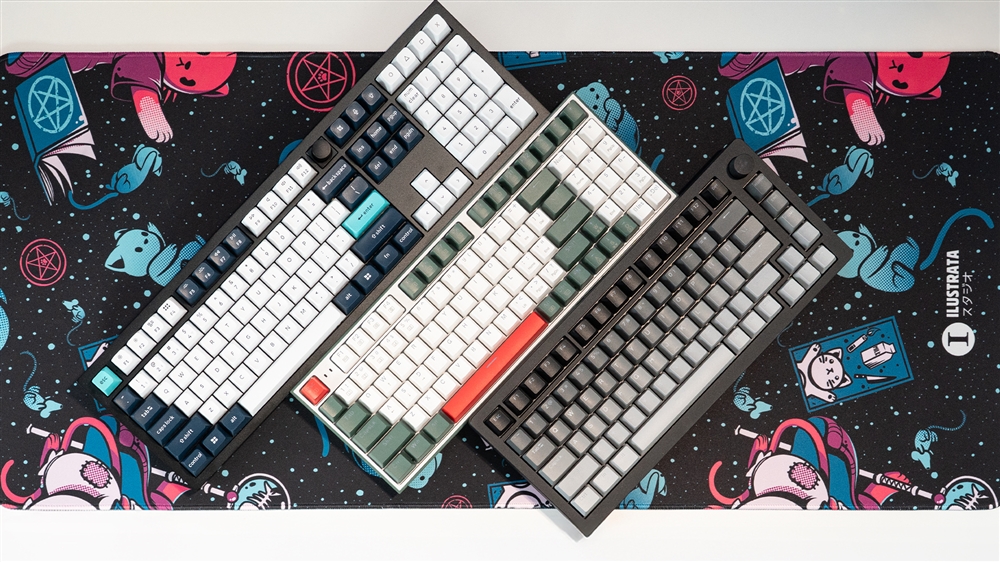How to Use AI to Plan the Perfect Trip
Whether you're going to the Olympics in Paris or just planning a quick getaway, the latest AI chatbots can help.How-To
 Image: Dall-E; Prompt: Dan Ackerman
Image: Dall-E; Prompt: Dan Ackerman
With the emergence of intelligent AI chatbots, planning a big trip on one’s own might seem easier than ever—at least in theory. Taking the power of search engines a step further, chatbots can possibly offer a more (seemingly) human touch in finding answers and planning logistics.
But are they really capable of planning an entire trip, from start to finish? Having a travel agent has long been helpful for answering complicated questions and smoothing out the finer details of a journey.
From looking up airfares and booking plane tickets to finding the best hotels and restaurants in your destination, we’ve asked ChatGPT, Google Gemini, and Microsoft Copilot for assistance in planning a trip to Paris—always a tourist hotspot in the summertime, but even more so this year with the Summer Olympics kicking off at the end of July.
We asked each chatbot the same questions to compare and contrast not just the depth and accuracy of their responses, but also how personable each one is, evaluating their answers across three categories: accuracy, specificity, and personality. (Ed. note: Some of these responses were edited down for brevity.)
Accuracy
AI Chatbots generally pull search results from multiple other sources online, and there is no shortage of travel content about Paris, so it shouldn’t be that difficult for chatbots to provide accurate answers, especially to objective questions. And for the most part, all three chatbots did fine on the basics of getting to and around Paris.
When it comes to planning a long-haul trip, booking airfare is top of mind along with securing hotel reservations. We asked the chatbots two specific, but slightly varying questions about airfare: “Which airlines offer the cheapest airfare to Paris?” and “What is the cheapest airfare from New York to Paris between July 25 and August 12? (The day before and after the Opening and Closing Ceremonies, respectively.)” And yes, while airfares can change from day to day, chatbots proved they can provide a general idea of what to expect.
In response to which airlines offered the lowest fares, ChatGPT offered what could be considered the most literal answer by responding with only the ultra low-cost carriers that fly within Europe, such as Ryanair, Easyjet, and Transavia. ChatGPT was also the only chatbot to not offer any specific airfares, even when asked directly, responding, “I don't have real-time access to current flight prices or availability. Airfares can vary widely based on factors such as the airline, time of booking, demand, and any ongoing promotions.” ChatGPT then went on to “recommend using online flight comparison websites or travel agencies” and provided more tips, but all of that still leaves the researching work to the user.
Without prompting on which airlines to look for, both Google Gemini and Microsoft Copilot seemed to take our present location (the U.S.) into account without asking, offering suggestions of budget airlines with Transatlantic routes, such as Norse Atlantic Airways and French Bee. Curiously, only Copilot suggested one of the top domestic carriers, Delta Air Lines, but made the peculiar suggestion of flying out of New York’s LaGuardia Airport with a layover, resulting in a 12 hour journey to Paris (versus just over seven hours if flying out of New York’s nearby John F. Kennedy International Airport). That said, the suggested fare via Kayak was only $569 roundtrip, truly a steal for the summertime.
Even if that seems like an odd choice, at least Copilot was also the only chatbot to offer linked sources at the bottom of results on all answers asked. And when it came to airfares, Copilot linked to multiple booking sites, such as Expedia, Priceline, and of course, Bing.
Taking advantage of leaning on Google Flights, Gemini had the most specific and verifiable answers when asked about specific fares between JFK and Paris’s Charles de Gaulle International Airport—even upping the search ante by including all New York area airports (to include Newark) as well as Paris area airports (just as Orly and Beauvais), this time leaning on the bigger name carriers like Air France, with the cheapest direct option being $816 roundtrip if you were to depart on July 25 and return August 12—the days before and after the Opening and Closing Ceremonies, respectively.
And when asked “How do you get tickets for the Opening Ceremony of the Summer Olympics?,” only Google Gemini offered the most honest, albeit disappointing, answer: “Tickets are no longer available through a traditional lottery system,” and, “Currently, the only way to get Opening Ceremony tickets is through resale.” Gemini even warned that “this can be risky, so be cautious if you choose this route,” going a step further to offer additional tips to keep in mind if going the resale route.
That said, Gemini wasn’t perfect either—with some errors so miniscule at first glance you’d have to be a local or previous guest to notice. For example, when asked about the best hotels in Paris, Gemini noted the Hotel Plaza Athénée, described as “steeped in Parisian romance, this luxurious hotel is a favorite among celebrities and royalty. It features a beautiful courtyard garden, a Michelin-starred restaurant, and a Guerlain spa.” The error is small but important for branding: the recently renovated spa at the Plaza Athénée is actually a Dior spa, but the guest rooms do feature Guerlain toiletries.
Specificity
Turns out chatbots are indeed chatty. In fact, some of the responses were downright overwhelming.
When asked “Which hotels have the best rates in Paris in July?,” ChatGPT didn’t actually offer any rates—instead seven (albeit detailed) tips on how to find affordable accommodation options, and while helpful, this once again requires the user to continue searching without any help from the chatbot.
That said, ChatGPT was very helpful when offering specific (and many) results when asked for hotel and restaurant recommendations, which are arguably more subjective and most likely based on reviews, although sourcing wasn’t provided.
When asked “What are the best hotels in Paris?,” all three bots replied with a few of the most famous properties, including Le Meurice, described by ChatGPT as “a grand palace hotel overlooking the Tuileries Garden, and the Louvre…with elegant rooms, exquisite dining options, and a prime location in the 1st arrondissement.”
Microsoft Copilot was extremely good at providing results in an easy-to-read manner, organizing search results in numbered or bullet-pointed lists, making the recommendations very easy to digest on questions like “What is the best way to get from Paris-Charles de Gaulle Airport to central Paris?” Copilot listed four options (private transfer, taxi, bus, and local train/metro), listing the costs, journey time, and advantages to each one.
Copilot was especially helpful at providing clear restaurant recommendations as well. When asked “Could you recommend vegetarian restaurants in Paris?,” Copilot listed five restaurants (a digestible amount, pun intended) to choose from, each listed with a description as well as information for location, ratings based on reviews, and open hours—a critical detail when visiting France as these can frequently vary from place to place on any given day. (Tip: It would be wise to call ahead to verify the restaurant is open if you haven’t already secured reservations.)
Personality
All of the AI chatbots have demonstrated a lot of growth when it comes to personality. And sure, personality isn’t an obligatory requirement here to planning trip logistics, but it does lend a nice touch. And one could argue you might subconsciously value a more personable chatbot as if you were taking travel advice from a trusted friend.
Only ChatGPT feels a little robotic still, with a lot of generalized answers but not a lot of specifics when asked about cheapest airfares and lowest hotel room rates, even with dates provided.
Copilot really goes against the old and staid Microsoft persona in a business suit, if not going over the top a little bit. (Copilot replied to every single question asked with “Certainly!” While it feels a little excessive, at least it feels positive.) Also, bonus points to Copilot for sprinkling emoji throughout its responses, including as more colorful bullet points (🌱in front of the vegetarian restaurant descriptions) and relevant ones at the end of search results (🌍✈️for airfares and 🗼🇫🇷 for anything related to Paris).
Google's Gemini, however, felt like the most balanced overall in its responses as far as clarity and persona, essentially telling you what you need to know but in an organized fashion without feeling disingenuous in its friendly tone.
When it comes to planning a trip entirely through a chatbot, it would be difficult to declare just one winner. If you want specifics, Gemini and Copilot seem to be leading the charge, but ChatGPT was valuable for general travel tips and advice.
But in perhaps the greatest show of intelligence, when “What is the best advice for tourists visiting Paris?,” all three very wisely noted: learn some basic French. As ChatGPT accurately describes, "While many Parisians speak English, making an effort to learn some basic French phrases can go a long way in terms of communication and cultural appreciation. Locals appreciate when visitors attempt to speak their language."
Read more: AI Tools and Tips
- Qualcomm Intros AI-Ready Snapdragon X Plus Chip
- Why Coders are Learning to Love Copilot
- Roll Your Own GPT: Setting Up Your Computer for Local AI
- Meet Blackwell: NVIDIA's Powerful New AI Chip
- How to Get NVIDIA Chat with RTX: Local AI for Everyone
- How to Make Sure Your Next Computer Is AI Ready
Rachel King is a writer, editor, and photographer who has been covering the intersection of tech and travel for nearly two decades. She has previously written for Fortune, ZDNet, CNET, CBS News, Fast Company, Insider, and CNN. A San Francisco native, she is based in New York City.
Comment on This Post
See More Blog Categories
Recent Posts
This Week in AI: Microsoft's Says AI Can Diagnose Patients Better Than Doctors
For July 4, 2025: Cloudflare blocking chatbots, ChatGPT referrals to news sites tick up, AI laws remain for states to decide.
Continue Reading About This Week in AI: Microsoft's Says AI Can Diagnose Patients Better Than DoctorsWatch: Intro to Electronics at Micro Center - Episode 3: Arduino and Servo Motors
In our new Intro to Electronics episode, we continue our DIY journey with some servo motors and an Arduino Kit, including code demonstration.
Continue Reading About Watch: Intro to Electronics at Micro Center - Episode 3: Arduino and Servo Motors








